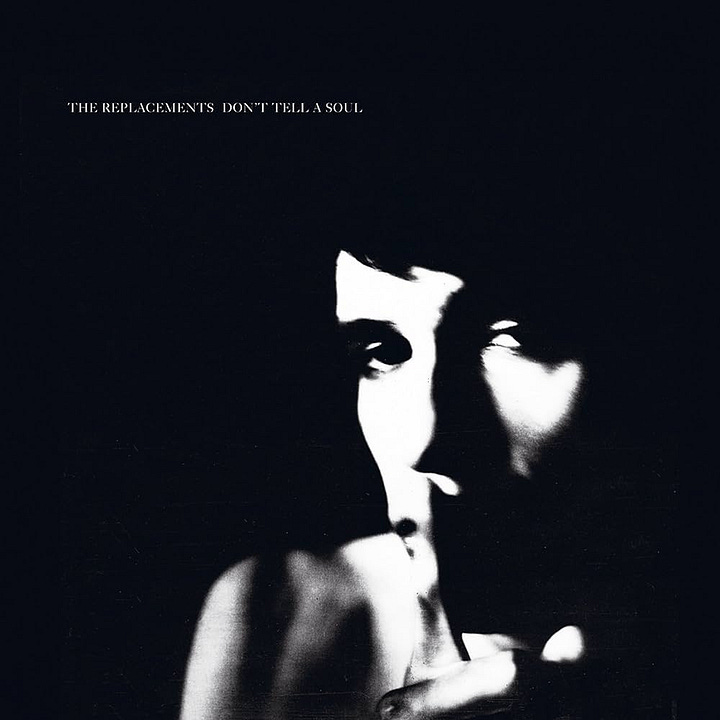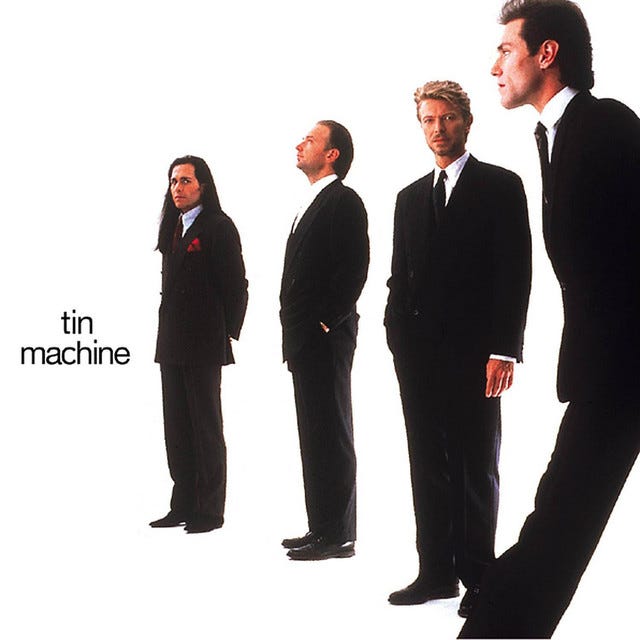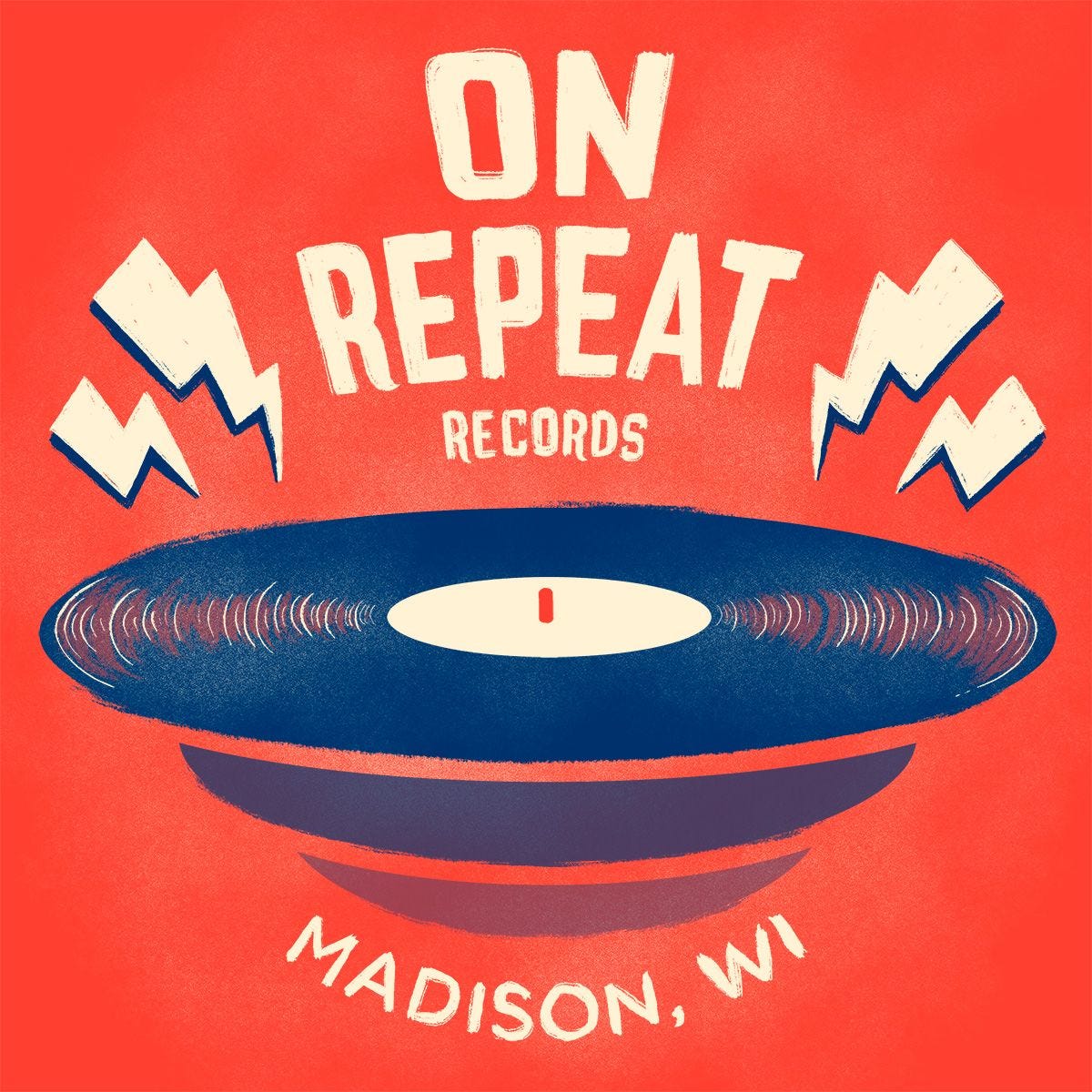The Best Record of 1989: Day 15
#24 The Replacements' Don't Tell a Soul vs. #105 Tin Machine's Tin Machine


Good morning!
Today we’re taking a look at records from The Replacements and David Bowie’s Tin Machine
Note: As many of you know, I recently wrote about a Best Record of 1989 challenge and noted that I'd be occasionally writing some of these up.
I've started doing some quick hits of each matchup and posting them directly to the page. Some will be longer, some won’t, and some might just be a handful of sentences. There'll probably definitely be some typos.
Check 'em out and let me know your thoughts! Chin wags & hot takes welcome! Sharing and restacks are always appreciated.
In case you missed this week’s earlier matches, check out:
Day 11- #25 Prince, Batman vs. #104 The Durutti Column, Vini Reilly
Day 12- #40 Chris Isaak, Heart Shaped World vs. #89 Technotronic's Pump Up the Jam
Day 13- #9 Tom Petty, Full Moon Fever vs. #120 Negativland, Helter Stupid
Day14- #56 The Vaselines, Dum-Dum vs. #73 Peter Gabriel, Passion of the Christ soundtrack
KA—
There used to be a wall in downtown Portland, Oregon, where someone had painted "Paul Westerberg is God." Anytime my friends and I were down there, we'd see it, laugh, and make the sort of inside jokes funny only to us. (notably, it stayed up for a really long time).
I'm not sure I'd go that far, but when it comes to taking sincerity and cynicism and making it sound fantastic, Westerberg is definitely in rarefied air.
Westerberg, of course, was in The Replacements, a band I've yet to find anyone say anything bad about. Don't Tell a Soul is a record that evokes plenty of strong thoughts.
Part of that rationale comes from the fact that DTaS is a departure from their earlier records. Gone are some of the rowdier, adolescent elements that made records like "Sorry, Ma' and "Hootenanny" such a wild ride. This is a more polished, straightforward-sounding record. There's no "Gary's Got a Boner" on this one. For all the self-sabotage and self-inflicted wounds over the years, DTaS at least feels like a record from a band that wants it to become popular.
The album kicks off with "Talent Show," one of my all-time favorites by the band. We can talk about playing style and instrumentation all day, but none of it would matter without first mentioning Westerberg's talent as a songwriter. Few people can tell a full story in so few words the way he can. He says in a few verses what it would take us mere mortals a book to describe.
You could make the argument that this was a preview of Westerberg's solo career, and it would have some merit. That would come in time. But for now, this is still a four-piece, and the music holds up as well as anything that came from Westerberg's pen. "Talent Show" is an all-timer, but "We'll Inherit the Earth" is right up there as well. "Achin' to Be" feels purpose-built to rocket up the Modern Rock charts, and does "I'll Be You." And no Reps record would be complete without a few acoustic-ish tracks. Here, "They're Blind" and "Rock n Roll Ghost" fill the bill.
If forced to pick a clunker, I'd go with "I Won't," but I wouldn't like it,
there is a line of thinking that "Darlin' One" is one of the weaker closers in the band's discography. When posted up against its predecessors ("Here Comes a Regular," "Can Hardly Wait," Answering Machine," etc.), it's an easy statement to make. But we're not comparing DTaS to those earlier records, and taken as part of this album, it holds its own just fine.
People like what they like, and they generally like whatever record they first hear of any given band. It's easy to see why the adoration for Tim, Pleased to Meet Me, etc., is still there decades later. In my case, DTaS was the first record by the band that I owned. And you never forget your first, right? I don't know if this would be one of my desert island discs, but it'd definitely be one of the ones spread out on my bed while I was scrambling to figure out what to pack.
If there's a lament here, it's that this should've been the record the band used to call time. It's the perfect endcap to a brilliant discography, and they would have gone out on top, IMO.
Instead, they hung out for one more record (All Shook Down), and it was a case of one record too long. In an alternate universe, that would've been the first solo Westerberg record rather than masquerading as the final Replacements one.
Somewhere, there is also a universe where Westerberg does things like run errands. He goes to the same appointments the rest of us endure. He does laundry. That’s not a universe I want to acknowledge or even know about. He might not be God, but he’s certainly a legend, and that’s enough for me.
In 1995, I saw David Bowie play. Setlist.FM will tell you it was a decent—if not great— setlist. A few hits, some deeper tracks as red meat for the true fans, and a couple of covers. Serviceable, if nothing else.
Nine Inch Nails was co-headlining, and they came out to play a couple together as well. All well and good.
What that webpage won't tell you is that I spent most of his set feeling underwhelmed. None of it made sense. This was Bowie! What the fuck? Maybe it was that the lights were never quite turned down. Maybe he didn't play a couple of tracks I'd been hoping for. Maybe I just wanted to see NIN more. The reasons don't matter, only the result.
This also happens to be how I feel listening to Tin Machine. I know it's a side project, but still! It's David Bowie's Tin Machine.
And herein lies the rub. This wasn't just another reinvention; this was an intellectual break with what he'd been doing. This was a quartet all on (supposed) equal footing, as opposed to hired guns performing Bowie's work.
The recording of the album was also a departure, with live takes making the final cut, etc.
It's a bluesy, gritty record- especially compared to the poppier veins he'd been tapping in the years leading up to this. There would still be a bit of time before Grunge really caught fire, and this feels like a Grunge record made before anyone knew what that was.
Being ahead of one's time was nothing new to Bowie-- he'd spent a whole career doing just that, but it's one thing to do it when you're a neophyte. It's wholly another to do it as an established m, member of the rock god Pantheon. We like what we like, and we (collectively) had no taste for whatever this was.
There are a couple of bright spots here and there (“Pretty Thing” in particular), but you have to squint to hear 'em. Relistening to the record, I couldn't help but be transported back to that show.
Sitting in that seat, I kept thinking I should be digging this more than I was. Listening to this ahead of the bracket challenge, those same feelings came flooding back.
Bottom Line: Both of these records represent a departure in form for the respective artists. It might be a hot take amongst Reps fans, but I think the band nailed it with DTaS. On the other hand, Tin Machine proves that abrupt departures aren't without their risks. Specific to this matchup, one of my favorite records of all time is up against one of the more underwhelming releases from an artist I like.
My vote: My bracket and vote will go to DTaS, and I won’t even blink while throwing the lever.
Any thoughts on either of these records? Agree/disagree with my takes? Which one of these would you vote for? Sound off in the comments!
Check out the full bracket here.
Info on the tourney, voting, and more is here.
As always, thanks for being here.
KA—
Before you go: As most of you have seen, I am a huge fan of the music streaming platform Qobuz. The sound quality is second to none, and the entire UX is fantastic. Thanks to our friend Kenn Richards, you can now see it for yourself.
I’m thrilled to share this exclusive offer for 2 free months. Not an ad, and there’s no catch. Just hella good sound quality, solid recommendations tailored to your tastes, and editorials well worth your time.
Note: The codes will be sent out by an actual human over the next several days. Please be patient.








This is a no brainer for me, although it’s clouded somewhat by Dead Man’s Pop, the DTAS restoration/revelation that truly brought that album to its rightful place in the Mats’ canon. I used to compare DTAS to X’s “Ain’t Love Grand,” another swing for the fences attempt at commercial success that was killed by its horribly dated production. (Funny how that happened to the Mats not once but twice during their major label run… see: Tim.)
Ironically, I used to play All Shook Down more than DTAS and still think in some ways it’s just as good if not better. But to each his own.
Tin Machine, on the other hand, felt like Dylan’s search for relevance in the 80s. A couple of good songs, but just not a good fit. Fortunately Bowie continued his restless tinkering with his sound and, much like Dylan, released a couple of classics before his too-early death.
I loved Tin Machine from the first moment I put the laser to the disc. Wild, explosive sounds and some great songwriting and impassioned singing. DTaS is also great and I agree with everything you said about it. Glad I didn’t have to vote between these, LOL.